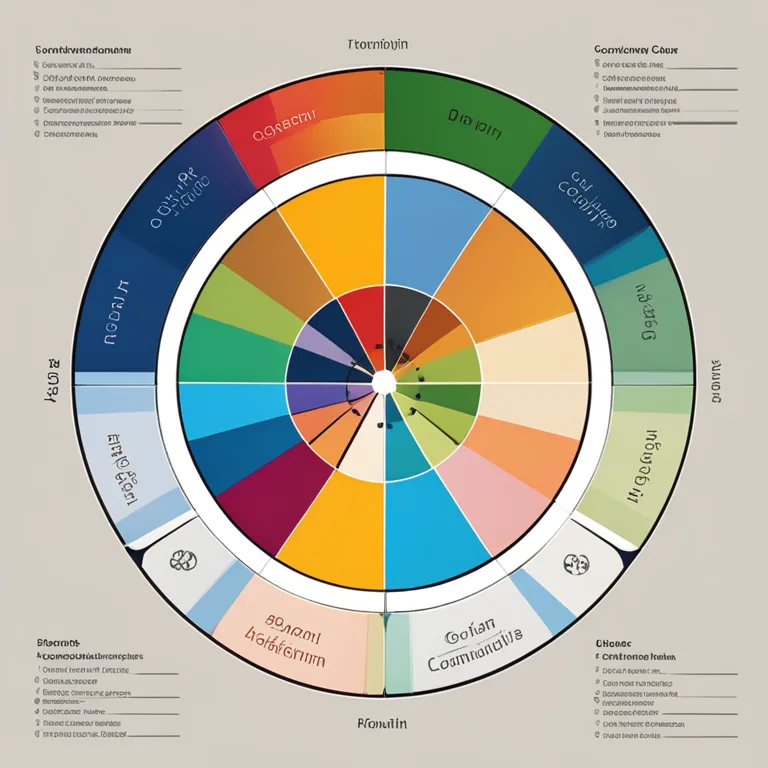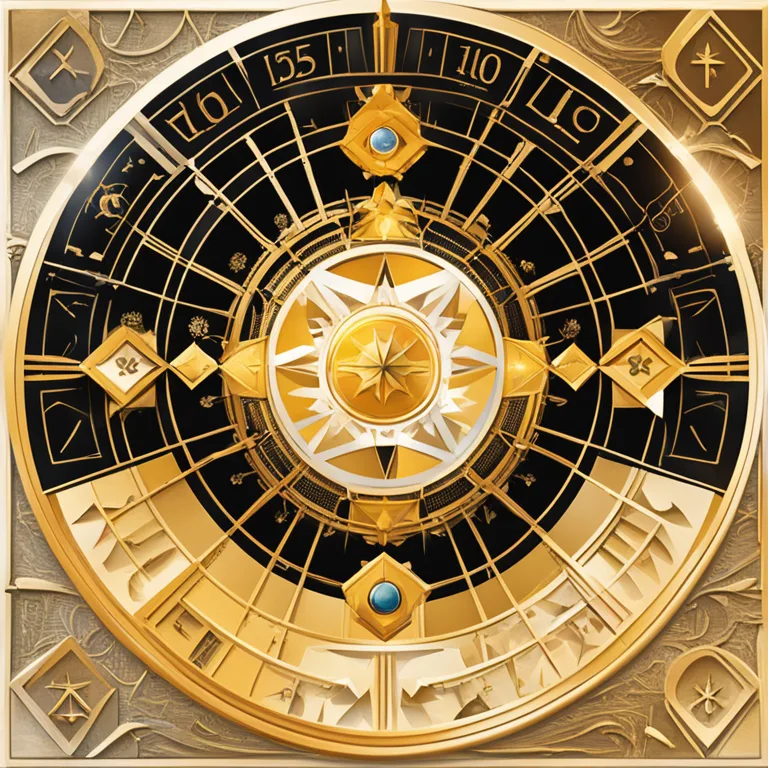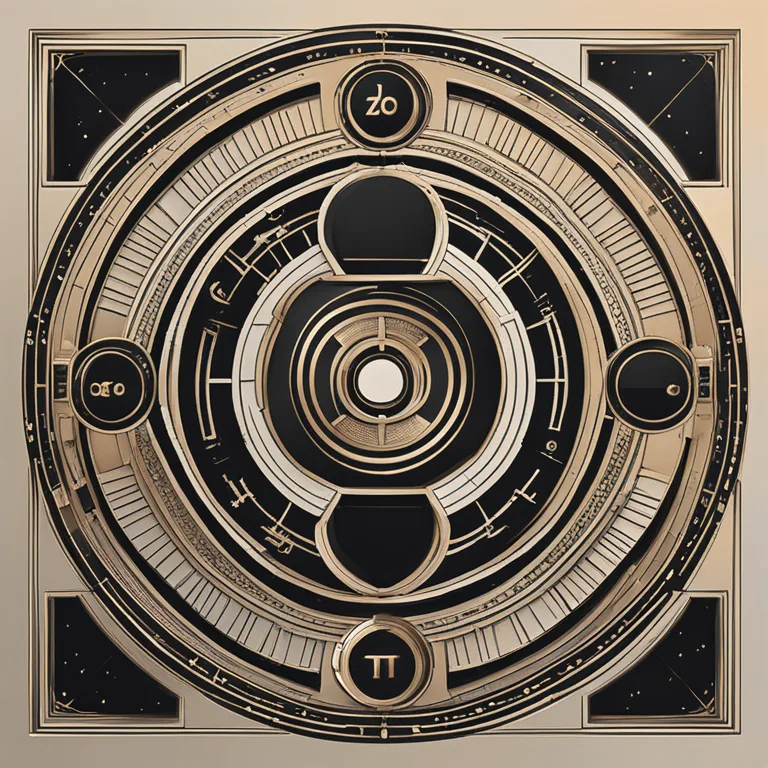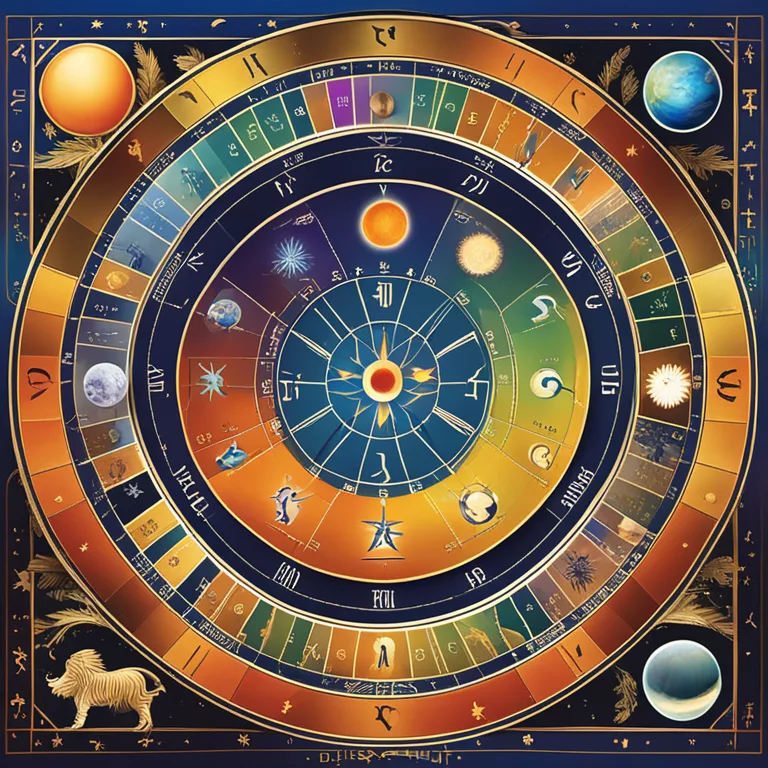
Your Birth Chart: A Short Guide
Dive into the basics of reading a birth chart wheel with our step-by-step guide, and begin the journey to uncovering the astrological insights of your life.
article by Priya Deshmukh
Step 1: Understanding the Chart Structure
Before deciphering the symbols and placements in your birth chart wheel, it's crucial to understand its basic structure. A birth chart is a 360-degree wheel divided into 12 segments, known as houses, each representing different areas of life. These houses correlate to various themes such as identity, resources, communication, home, romance, health, partnerships, transformation, beliefs, ambitions, community, and subconscious. At the center of the wheel, the moment of your birth is frozen in time, capturing the positions of the planets and other celestial bodies, as they align with the 12 zodiac signs.

Step 2: Identifying Zodiac Signs and Planets
Each of the 12 zodiac signs, from Aries to Pisces, has its energies and attributes that influence the areas of life signified by the houses they occupy. The planets, from the Sun to Pluto, represent different facets of your personality. For instance, the Sun relates to your core essence, while the Moon governs emotions. To read a birth chart wheel, begin by noting which zodiac signs and planets fall into which houses. This will give you a foundation for understanding the interactions between the celestial bodies and the areas of life they impact.

Step 3: Placement of Planets in Zodiac Signs
Each planet's placement in a particular zodiac sign is significant. A planet in a sign it rules, like Mars in Aries, is comfortable and potent. However, a planet in a sign opposite to its rulership, for example, Saturn in Cancer, may suggest challenges. Analyze not just the sign each planet occupies, but also the aspects, or angles, planets form with one another. Positive aspects like trines or sextiles can indicate harmony, while squares or oppositions might reveal tensions or obstacles to overcome.

Step 4: The Rising Sign and Ascendant
The Rising Sign, or Ascendant, is the zodiac sign that was on the Eastern horizon at the time of your birth and marks the beginning of the first house. This sign has a profound effect on your personality and appearance. By understanding the traits associated with your Rising Sign and how it interacts with the planets in your chart, you can gain deeper insights into your outward demeanor and the initial impressions you make on others.

Step 5: Analyzing the Houses
A birth chart wheel reveals not just planetary positions but also how these energies operate within the framework of your life. Each house represents different spheres of influence, with the 1st house pertaining to self-identity and the 10th house to career and public status. By examining which planets occupy which houses—and therefore which areas of life they influence—personal patterns and life themes can become startlingly clear.
Step 6: Noting Significant Transits and Progressions
As planets continue to move after your birth, they form transits with the positions on your natal chart, triggering events and personal development. For forecasts in 2024 and beyond, it's crucial to look at important transits, like Saturn return or Jupiter cycle, which influence certain years of your life more than others. Meanwhile, progressions, or the symbolic growth of your natal chart over time, offer insight into personal evolution. Knowing where transits and progressions occur in your chart allows you to prepare for future possibilities and challenges.
Published: 12/27/2023
Modified: 12/27/2023
More predictions
Come back here soon to learn more about yourself and your future


How to Track the Moon’s Phases
Discover simple methods to find out the current phase of the moon for insights into astrology and biorhythms.


From Crescent To Full: Moon Phases In Love
Discover the intriguing impact of lunar cycles on romantic dynamics and how each moon phase can shape your partnership's path.


Tracking Moon Phases: A Simple Guide
Learn the easy steps to find out the current phase of the moon with our simple guide, perfect for astrology and horoscope enthusiasts.